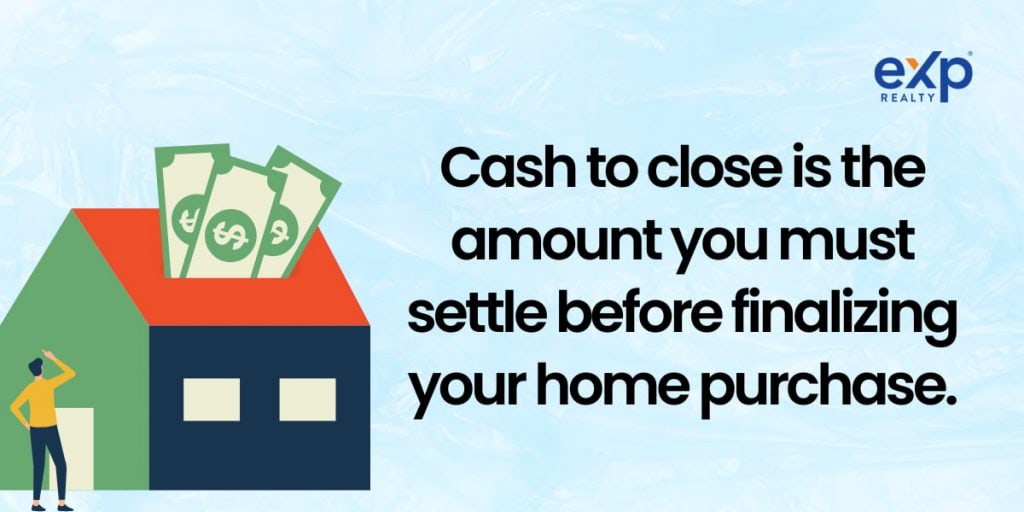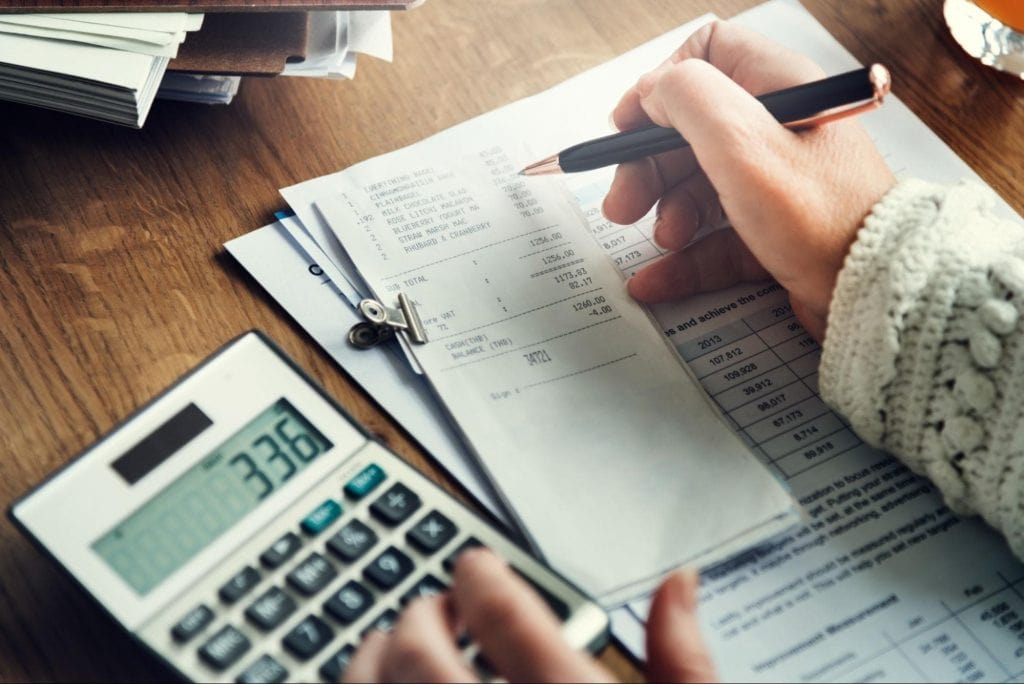The tedious process of house hunting and home buying usually ends by honoring your cash to close. Most people easily interchangeably use cash to close and closing costs interchangeably. However, they’re pretty different. But you need to understand both costs when purchasing your house.
Preparing your cash to close earlier helps you finalize your loans and close the deal swiftly. You can identify and calculate probable fees and costs incurred when closing the deal. Also, you can eliminate or manage other financial costs that may overwhelm you later.
Read on to understand cash-to-close and other important things to know when purchasing a house.
What Is Cash to Close?

Cash to close is the amount you must settle before finalizing your home purchase. Understand that you’ll have extra expenses other than the buying price of the home. It consists of several items or fees like earnest money, seller credits, and closing costs you must complete the process.
Some costs, like part of the deposits or closing costs, may be rolled into your loan repayment. Hence, the funds to close won’t include these fees. Other costs that affect how much you’ll pay in your settlement costs include:
Closing Costs
Closing costs are among the highest costs you’ll incur before you get your home keys. It includes the administrative and property fees incurred from the start of the sale process. They could consist of the following:
- Property transfer taxes – Real estate transfer taxes imposed in different states are usually a percentage of the selling price. It’s equivalent to the sales tax when you buy regular items.
- Appraisal fees – When you hire an appraiser to ascertain the exact value of your house, you must pay for their services. These costs get passed on from the lender, regardless, and should be reimbursed if the lender catered to them.
- Attorney fees – If you hired an attorney to help in the buying process of your house, you’d have to pay them on the day of closure.
- Title insurance protects you and the lender from any title deed issues during your home ownership. It absolves you from incurring extra costs to rectify or follow up on title transfer issues during your ownership.
- Mortgage insurance – The mortgage insurance covers the application review costs by the lenders. It’s an administrative cost that you incur when submitting your mortgage documents.
- Inspection fees – If you had the house inspected for pests or other issues, you’d have to pay for the inspection before closing the deal.
Also, if your deposit doesn’t cover at least 20% of the total costs, most lenders will demand you pay for Private Mortgage Insurance (PMI). This insurance covers the lenders in case there are losses from loan defaulters.
You’ll find that these closing costs will differ in different states and locations. Some government loans, like the FDA or USDA, require you to pay upfront fees, like upfront mortgage premiums for subsidy programs. Thus it may affect the overall closing costs.
Earnest Money
An earnest money deposit is typically a credit note when calculating the cash to close. It’s the initial deposit you put in when you first identified the house. This amount gets deducted from your total cash to close when calculating the owed amount.
For example, if the house cost is $400000 and you agree to a 10% deposit, it is equivalent to $40000. But you pay a commitment fee of $10000. Then, when closing your deal, your initial deposit will reduce your down payment amount by $10000, and you’ll only have to pay $30000.
Credits
Credits refer to any fee paid to the lender to cater to property demands. You’ll deduct the credits from your total funds to close the amount. However, you’ll include prepaid interests in your cash to close. The prepaid interest is the interest accrued on your loan between the closing date and your first loan repayment date.
If your closing date is on the 18th and your monthly payments should be on the 2nd of every month, then your cash to close will include the prorated interest for the 14 days before your first repayment.
Seller concessions also act as credits to your settlement cost. These are taxes, origination fees, or parts of the closing costs the seller agrees to cater to will reduce your upfront costs.
Deposit
The deposit is the bulk of the cash to close costs. You must pay up the agreed deposit amount when closing the sale. However, there are no restrictions on the extra amount to add to the deposit. It’ll help you reduce your monthly repayments too.
Paying at least 20% of the selling price as a deposit is advisable to avoid the PMI, which increases your closing costs.
How Is Cash to Close Calculated?

If you have your loan estimate, you can calculate your cash to close estimate as you wait for your closing disclosure agreement. The closing disclosure is a five-page document that details your mortgage loan and has the cash to close details to complete the purchase.
The lender gives you the loan estimate once you apply for the mortgage or home loan. They’ll outline your cash to close estimate in the document (usually page 3), including other costs in your home purchase process.
The lender will hand you the closing disclosure at least 3 days before the closing date. It itemizes the closing costs and other costs to be included in the funds to close the deal. The actual cash to close is higher than the closing costs as it consists of the downpayment on the purchase price.
To calculate the cash to close, start with identifying the closing costs. They should include administrative fees, appraisals, mortgage application fees, inspections, prepaid interests, property taxes, and title insurance.
Add the home’s downpayment (a percent of the buying price) to these closing costs. The amount you agreed on as the downpayment influences the total costs owed when closing your home purchase.
If you paid an initial deposit during negotiations, the seller should deduct that amount (Earnest money) from the cash to close. Ensuring you have records of initial deposits paid should reduce your cash to close.
Consider any credits from the lender or seller that may reduce your cash to close. Such credits include the seller concessions or lender credits that should be deducted from your cash to close for the final amount.
Compare the closing costs on the disclosure agreement, your calculated estimate, to the loan estimate to ascertain the correctness of the document. If you agree with the set financial responsibilities for your loan, you can sign and complete the real estate transaction by honoring your cash to close costs.
How To Pay for Cash to Close
You can pay for your cash to close in different ways. Most agents or lenders lean towards other forms of payment than cash for safety. Here are the most common forms of payment.
Cash
Most agents and firms discourage cash payments because of their safety and legitimacy. However, some people still prefer settling their closing dues using briefcases. Inquire from the agent or seller to determine if they’ll accept cash when closing the deal.

Cashier’s Check
You can get a cashier’s check at your local bank. The bank certifies the check, which has several security features like signatures and watermarks, bringing assurance between you and the lender. Purchase a cashier’s check at the bank or credit union at a small fee.
The bank will guarantee your payment and use their money to settle the lender’s money as written on the check. However, your account should have the check amount before the cashier’s check purchase. The financial institution will recover funds from your account after the lender cashes the check.
Ensure you verify the correct recipient details and check amount when purchasing the check. Some banks may have restrictions on non-customers. Hence ensure you’re legible to use the cashier’s check before choosing it as a mode of payment.
Certified Check
A certified check works more like a certification or assurance that you can cover the lender’s financial demand. The bank will certify that you have the check amount in your account by signing the certified check. Then, it locks the amount until the lender cashes the check.
Wire Transfer
Wire transfers allow you to send money electronically to the lender without physically visiting the financial institution. The most common wire transfer is using the SWIFT account. You’ll only need their address to transfer the funds using the internet without much hassle. However, it may take days before the money reflects on the lender’s account.
The challenge with wire transfers is the possibility of messing up or missing the account information. Ensure you counter-check the information before sending the funds, as a reversal may require a lengthy process.
Use these methods to close your house purchase. Credit, debit cards, or personal checks are highly discouraged because of the potential risks.
Credit card companies don’t allow for large volumes of cash and thus can’t be accepted by the mortgage company. The high probability of having a bounced personal check forces lenders to use certified checks, cashier’s checks, or wire transfers.
Ensure you have enough cash to cover the cash-to-close costs as you approach the final closure of the deal. Start saving earlier when house hunting to avoid rushing or stressing over finances during this time. You can outsource extra funds from the mortgage loan or friends and family to top up to get the required amount to close the purchase.
Consider the estimates and consult with real estate agents and lawyers to prepare adequately when closing the deal. Also, you can negotiate with the lender to have some costs, like the appraisals, rolled over to the loan amount to reduce the closing costs.
Tips for Homeowners
The closing costs of a home purchase could cost you thousands of dollars. Inadequate preparations can frustrate you, leading to delays. These tips will help you prepare for your closing date with the mortgage company.

Start Saving Early
Start saving for your deposit and closing costs early if you intend to be a homeowner. Set up a homebuying budget that allows you to build a fund that’ll sort out your deposits or part of the closing costs.
Align Your Finances and Closing Estimates
Before you start your house-hunting process, align your finances. Have enough money that’ll take you through to closing the deal without frustrations. Contact financial institutions for funding and learn about their terms and conditions. Inquire about their loan terms and cash to close estimates for further preparations.
Inquire and Consult with Real Estate Agents
Every real estate purchase requires an agent. So, inquire from a real estate attorney on mortgage loans and rates in the area. They’ll advise you best on how you handle and manage the process. Some will even help you calculate the expected cost once you identify the house.
Analyze the Loan Estimate and Closing Disclosure Before Signing the Documents
Review and check the details in the loan estimate and closing disclosure documents before signing. Ask about any clause or entity you don’t agree with or understand for further clarification. The financial obligations in these documents will bind you until you complete the repayments. Thus, take care to get all vital information when signing them.
Understand the Cash To Close Logistics
Understand what you need when closing your home purchase deal. Research and inquire about these details beforehand to give you an easy time.
Bottom Line
When preparing to close on your home, remember these key takeaways:
- Cash to close is the total amount of money you pay when closing a home purchase deal
- Cash to close consists of the closing costs and the deposit less the earnest money, sellers concessions, and lender’s credits
- Closing costs are the administrative and property taxes or origination fees that you’ll incur when working on the property transfer
- Understanding the cash to close helps you save wisely and prepare adequately when buying your house
If you’ve saved up enough of a budget to feel ready to start the home buying process, check out some properties for sale and reach out to a local real estate agent to help you get started.
Frequently Asked Questions
Here are some common FAQs on cash to close costs.
What does cash to close mean?
Cash to close is the amount due when closing a home purchase deal – it is the deposit, and closing costs less credits, concessions, and earnest money.
Who do you pay cash to close to?
You pay the amount to the mortgage lender.
Is cash to close the same as closing costs?
No. Closing costs consist of the administrative and property fees, while cash to close is the closing costs plus the down payment.
Can you negotiate cash to close?
It’s challenging to negotiate the cash to close. But you can negotiate to pay a lower deposit and have some costs roll into the loan repayments.
Why does paying cash take so long to close on a house?
Because the seller has to verify that the buyer has enough money to purchase the house.
What happens if cash to close is negative?
If cash to close is negative, you can spend the extra cash on the cash to close.
Can a seller back out of a cash offer?
A seller can back out of a cash offer on or before closure. However, if there’s a clause barring this move, it would be impossible to back out.
How is cash-to-close different from down payment?
Cash to close consists of both the downpayment and closing costs. The downpayment is a percentage of the house cost.
Can cash to close be rolled into a loan?
You can roll some of the cash to close costs into the loan.





